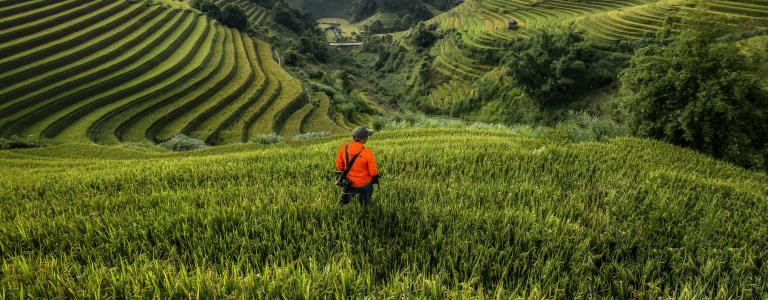IISD's Best of 2023: Publications
As 2023 draws to a close, we revisit our most downloaded IISD publications of the year.
1. State of Global Environmental Governance
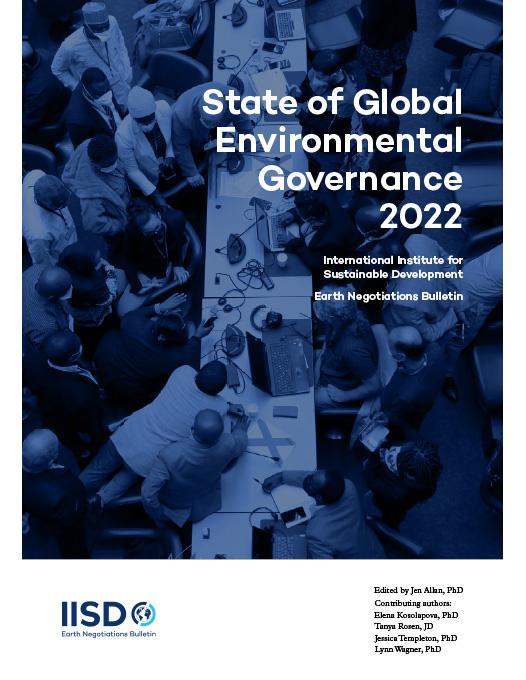
With the pent-up need for countries to agree on how to address climate finance, plastic pollution, biodiversity loss, and other pressing environmental issues, a tidal wave of in-person negotiations swept through 2022. The globetrotting Earth Negotiations Bulletin team reviewed an unprecedented year in sustainable development negotiations, drawing links between talks, considering the context of an uneven pandemic recovery, and reflecting on the next steps in addressing the triple planetary crisis.
2. On Behalf of My Delegation (Second Edition)
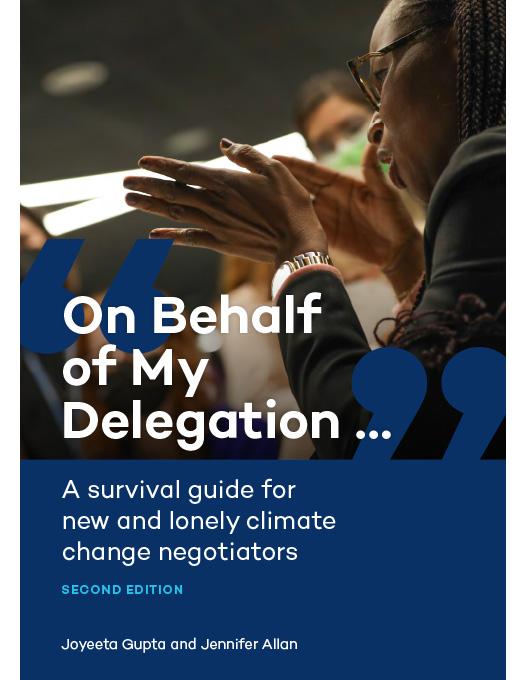
This Survival Guide exists to empower meteorologists, environmentalists, policy-makers, or scientists who have to don the garb of a “negotiator” at the talks or professional negotiators with little understanding of the variety of issues that arise in a climate change negotiation. This practical manual explains the substance and procedures of climate talks, mixing theory with practical tips, ideas with material for further research, and words with figures. This guide is written with special consideration for negotiators from the Global South, who arrive at climate conferences with fewer resources and colleagues than the delegations of the Global North. With accessible definitions and advice for all, this second edition of On Behalf of my Delegation ensures that negotiators are equipped to make an impact in negotiations for our very survival.
3. Agrivoltaics in India: Challenges and opportunities for scale-up
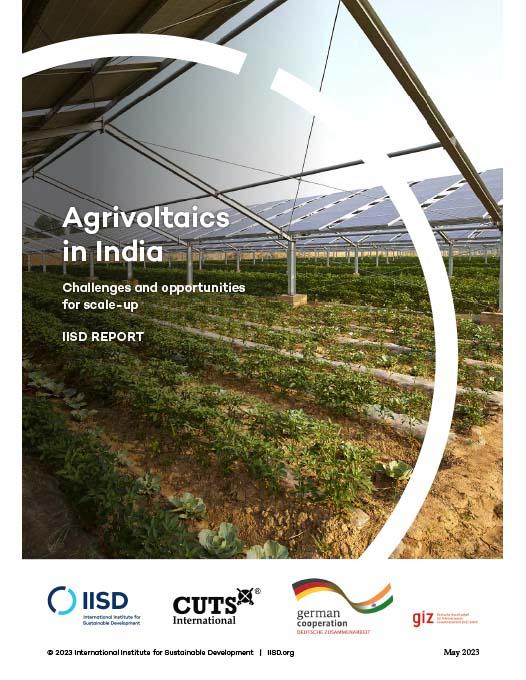
Agrivoltaics —the simultaneous use of land for both agriculture and photovoltaic (PV) power generation—offers a potential solution to the competition between agriculture and renewable energy for land resources that may arise in the future in India. This background paper assesses the current state of development and identifies the challenges and opportunities for the commercialization of agrivoltaics in India. The findings in this paper are designed to support state agencies, developers, and other stakeholders in the faster adoption of agrivoltaics by providing policy recommendations and proposing business models, along with a financial and technical transition mechanism.
4. The WTO Agreement on Fisheries Subsidies: A reader’s guide
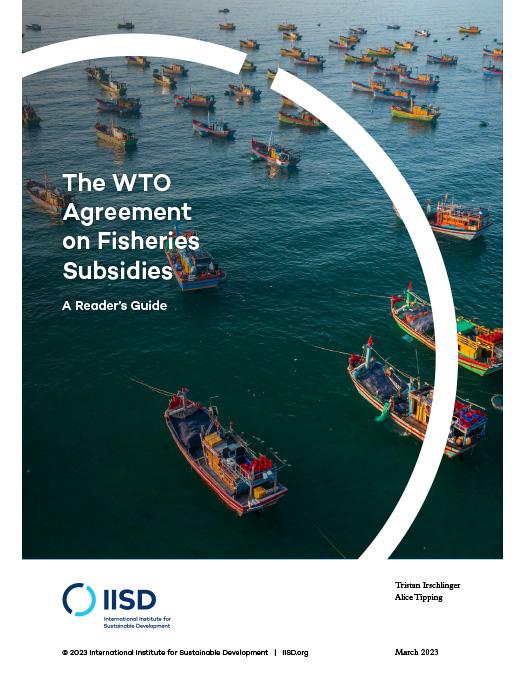
Members of the World Trade Organization concluded a multilateral deal to curb harmful fisheries subsidies in June 2022. This reader's guide provides a clear overview of the WTO Agreement on Fisheries Subsidies. It describes the rules and legal provisions that have been agreed upon and succinctly explains what the disciplines require.
5. The State of Play of Natural Infrastructure on the Canadian Prairies
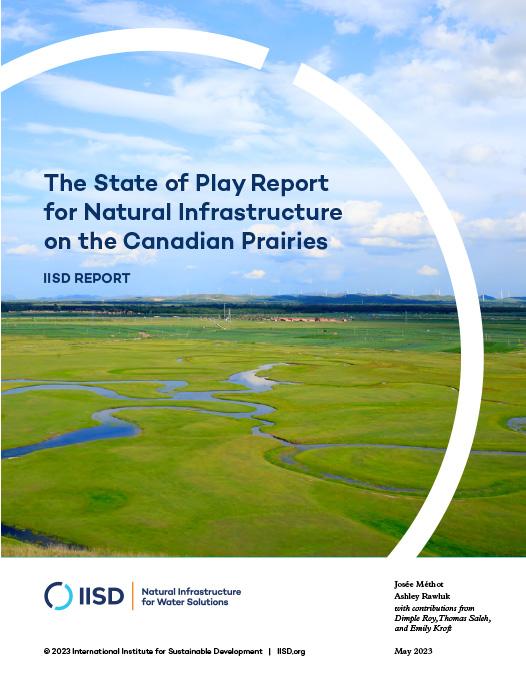
Constrained finances, fragile water resources, and catastrophic weather events are driving the need to rethink water infrastructure for present and future generations. With aging and deteriorating water infrastructure across the Canadian Prairies, natural infrastructure can offer a unique and innovative solution. We sat down with key experts across the region and reviewed the latest literature to determine how to take natural infrastructure from novel to normal on Canada's Prairies.
6. Fanning the Flames: G20 provides record financial support for fossil fuels
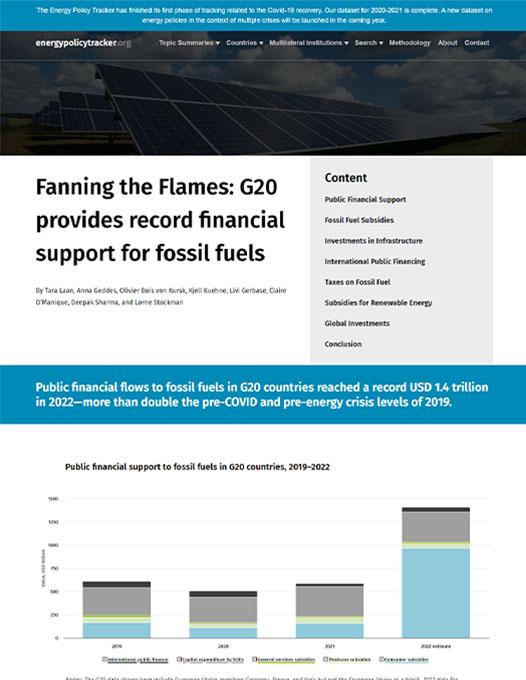
This digital story provides the latest evidence regarding the extent to which the G20, as a whole, has made progress in aligning public financial flows with the need to reduce greenhouse gas emissions. The first four sections cover the main types of support for fossil fuels: subsidies, investments by state-owned enterprises, lending from public financial institutions, and under-taxation. The final two sections examine progress on renewable energy subsidies and investments. Each section contains recommendations for the G20.
7. Achieving Sustainable Food Systems in a Global Crisis: Summary report
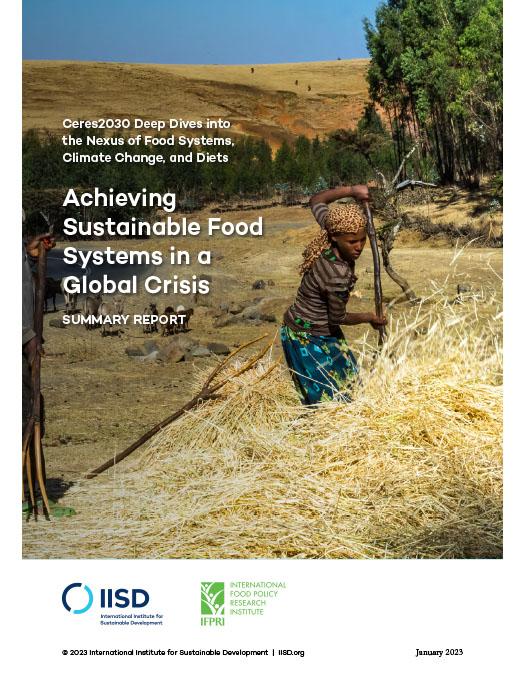
This report summarizes the evidence-based and costed country roadmaps for effective public interventions to transform agriculture and food systems in Ethiopia, Malawi, and Nigeria in a way that ends hunger, makes diets healthier and more affordable, improves the productivity and incomes of small-scale producers and their households, and mitigates and adapts to climate change.
8. Next Steps for Defining a Monitoring, Evaluation, and Learning System for the Global Goal on Adaptation by COP 28
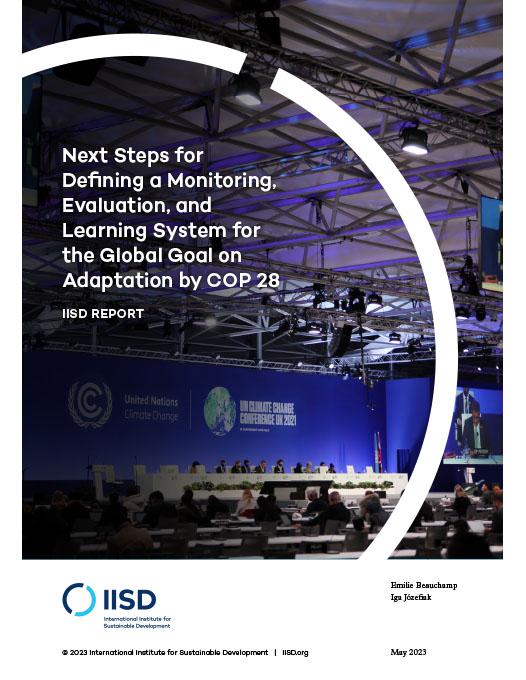
In 2022, at the 26th UN Cliamte Change Conference (COP 26), countries created the Glasgow-Sharm-el Sheikh (GlaSS) work program on the Global Goal on Adaptation (GGA), a 2-year program aimed at exploring how the GGA can be operationalized. Additionally, countries agreed to use the last year of the GlaSS to finalize a GGA framework with a view to adopting it at COP 28. This report first provides an overview of key concepts and elements needed under monitoring, evaluation, and learning systems, along with examples and relevant conceptualizations for the GGA for actors to advance their understanding and views of a prospective GGA framework by COP 28.
9. Global Market Report: Cotton prices and sustainability
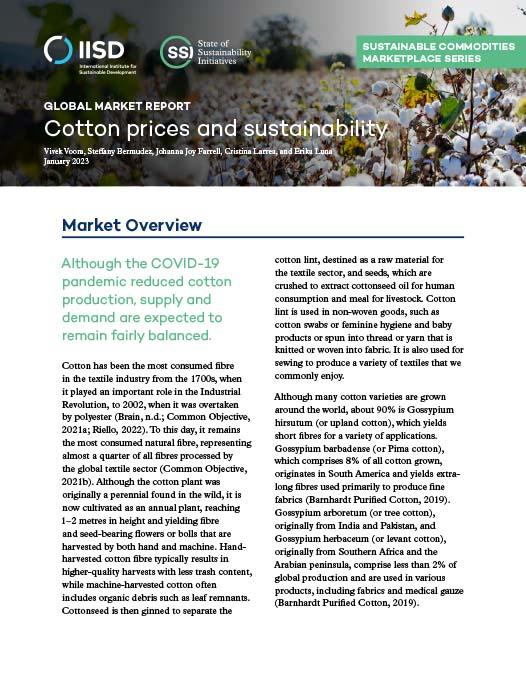
From the clothes we wear to critical medical equipment, cotton is the most widely used natural fibre in the textile industry today, accounting for almost a quarter of all fibres manufactured worldwide. Cultivating cotton provides livelihoods for 100 million households, of which 90% are in lower-income countries. An additional 350 million people support cotton production and basic processing by working in transportation, ginning, baling, and storage. This report presents and analyzes the sustainable production and consumption trends in the global cotton sector and includes a detailed exploration of how adopting voluntary sustainability standards can affect prices and farmer incomes.
10. Setting the Pace: The economic case for managing the decline of oil and gas production in Canada
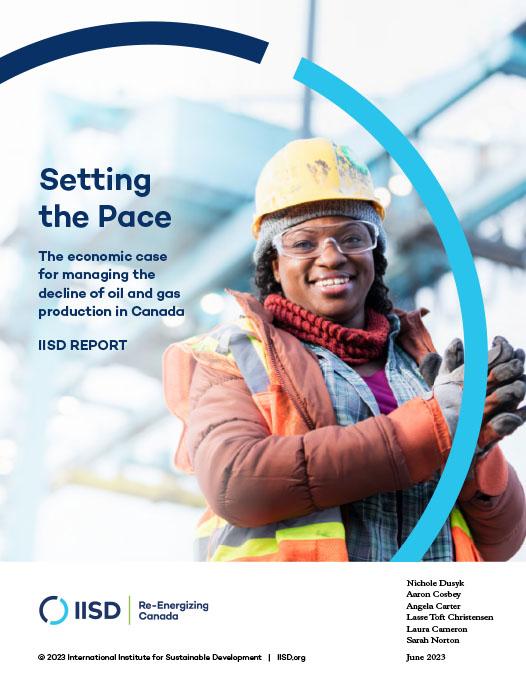
The oil and gas sector's role as one of Canada's economic engines is already changing. This report analyzes successful energy transitions in other jurisdictions. It finds that by enacting policies, the government can prepare for the phase-down of oil and gas production, protect Canadian workers and communities, and seize new economic opportunities.
You might also be interested in
Q&A: What progress has been made on protecting nature a year on from COP15?
It has been more than one year since the gavel came down at the last UN biodiversity summit, where almost every country in the world agreed on a plan to protect nature.
UK leaves pro-fossil fuel Energy Charter Treaty
The UK has joined nine EU member states in exiting the Energy Charter Treaty (ECT), a controversial investment pact weaponized by big emitters to sue governments — most recently for phasing out fossil fuels.
The Dangers of Cleaning Products We Don't Discuss | Opinion
In many ways, the COVID-19 pandemic is not over yet. While the world may seem to have moved on when it comes to our quotidian practices, we never fail to be struck by the continuing prevalence of sanitizers, masks, tests, and cleaning agents present in places of work, homes, and stores. What impact does this have on our environment?
At WTO meet, India will have to balance between protecting local fishers and fishing sector growth
India is likely to advocate for securing the interests of its artisanal fishers while facilitating the growth of the fishing sector at the World Trade Organisation’s 13th Ministerial Conference (MC13) in Abu Dhabi later this month.
